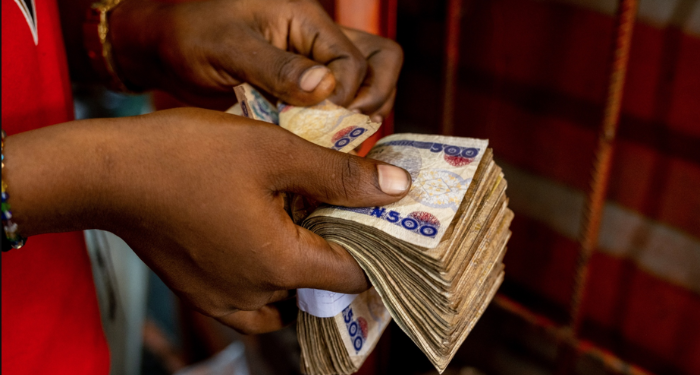New research by the World Bank has revealed that the conditional cash transfer program of the Federal Government since 2016 has little effect on household consumption, financial inclusion or employment of beneficiaries, especially women.
The report noted that beyond the limited effect on household consumption, the program also did not quite impact women’s employment.
The global lender recommended a complimentary livelihood support intervention together with the cash transfer program.
Furthermore, the research by the Bretton Woods Institute stated that there was no statistical evidence to prove that the program encouraged financial inclusion.
It stated, “However, in contrast to these strong positive impacts, we do not find any statistically significant effects on overall household consumption or on caregivers’ employment and financial inclusion.
“Nonetheless, the limited impacts on household consumption and women’s employment suggest that there is remaining scope for a complementary livelihood support intervention to generate sustainable improvements in households’ self-sufficiency.”
Positives of the program
Despite the problems with the cash transfer program, the research revealed some positives of the program which include: an increase in household savings and food security, and increased access to farmlands and livestock, among others.
The report also noted that beneficiary households were most likely to move away from expressly using their income for household consumption and save longer.
Furthermore, beneficiaries of the program reported improved autonomy in decision-making and freedom to move.
It stated, “We also find improvements in caregivers’ self-reported happiness, decision-making autonomy over how to spend their own income, and freedom of movement.
“Households are substantially more likely to save the longer they have been receiving cash transfers and to switch away from exclusively using the cash for household consumption”
What you should know
In 2016, the Federal Government of Nigeria, in collaboration with the World Bank, launched a social safety net program for the nation. The project is being implemented through the National Social Safety Nets Project (NASSP).
- At its launch in 2016, the Federal Government planned to share N5,000 to one million Nigerians as part of its N500 billion social intervention package. In the following years of President Muhammadu Buhari’s administration, the program was sustained alongside others.
- However, on assumption into office, the President Tinubu government, through the National Economic Council (NEC), rejected the social intervention register on the back of credibility issues.
- The Federal Government’s Social Intervention Program has come under intense public scrutiny following corruption allegations that trailed the suspension of the Minister of Humanitarian Affairs, Dr. Beta Edu.
- In 2023, the Federal Government secured an
- $800 million World Bank facility to be used for cash transfer to most vulnerable Nigerians following the removal of petrol subsidy by President Tinubu.

















